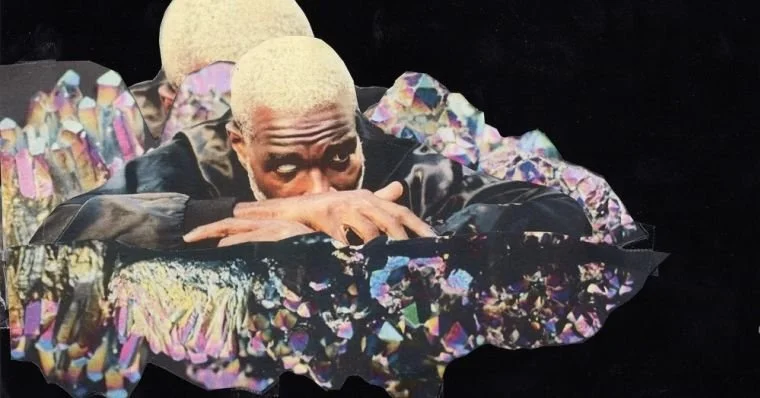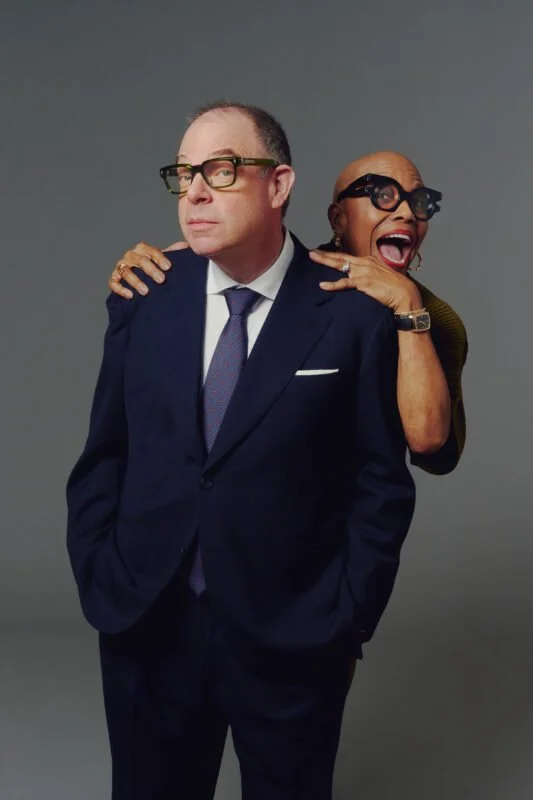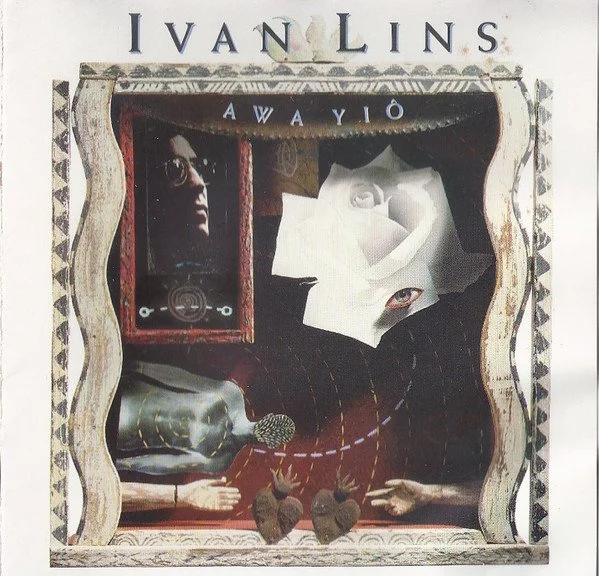Catching up with the Culture Part 2: Albums, Films, Books, and Museums
Welcome to Part 2 of my “Best of” 2025 culture series focuses on the best musical, cinematic, literary, and visual culture I’ve seen over the last few months. Part 1 of the three-part series focuses on television. On this list I include museums, alongside popular media, because a) museums are awesome! B) art is essential for our well-being and c) public funding for the arts is more precarious than ever due to an overreaching, anti-artistic and anti-intellectual executive branch. Several of the exhibits are traveling and worth following if, and when, they come to your city (or town!). I saw the Tony-Award winning Oh Mary! on Broadway with the fabulous original cast and a brilliant Off-Broadway production of Little Shop of Horrors, recently and they’re worth watching. As wonderful as they were I recognize not everyone has the time and resources to travel to New York, but I urge you to support theatres and performing venues in your local community. I’m sure the actors, directors, stage crews, and artistic directors will appreciate it.
Best New Albums:
Dark Moon (Holly Cole, Rumpus Room/Universal Music, 2025)
Jazz chanteuse Holly Cole has been interpreting standards and contemporary songs with intelligence and gusto since 1990. Though well known in her native Canada most U.S. listeners, even jazz fans, have yet to discover her. It’s time for them to catch up. She has a unique way of listening closely to songs which usually translate into distinctly incisive renderings of even the most familiar songs. Her instincts are as sharp as ever on 2025’s Dark Moon. Examples include a gently ominous version of “Steppin’ Out with My Baby,” a jaunty and effervescent “No Moon at All,” a lovely “Moon River,” and the most dramatic, emotionally penetrating version yet of the Burt Bacharach-Hal David classic “Message to Michael.”
Tune Adebimpe defies category on the dynamic and surprising Thee Black Boltz.
Other recent recordings in rotation:
· Thee Black Boltz (Tunde Adebimpe, 2025): Thrilling synth-pop, rock, and funk from TV on the Radio vocalist and actor Tunde Adebimpe.
· Elemental (Dee Bridgewater and Bill Charlap, 2025): Highly dynamic and unpredictable voice-and-piano set between two virtuosos.
· Raíces (Gloria Estefan, 2025): Modest but pleasing set of Cuban inspired originals by living legend Estefan.
Vocalist Dee Dee Bridgewater and Pianist Bill Charlap complement each other perfectly on the elegant jazz album Elemental.
A special note: Legendary Brazilian MPB (Música Popular Brasileira) singer-songwriter Ivan Lins, celebrates his 80th birthday this year. A recording artist since the 1970’s he has a prolific and highly distinguished recording career. Several lyricized versions of his melodies, including “Love Dance,” “The Island,” “Evolution,” and “She Walks This Earth,” have been covered by popular singers like George Benson, Barbra Streisand, Johnny Mathis, Susannah McCorkle and Sting. Recently I’ve been revisiting his extensive catalog and have been obsessed with 1984’s Junto featuring reinterpretations of Lins’s songs with various artists, including Brazilian soul singer Tim Maia and American singer Patti Austin, and 1991’s folk-rock flavored Awa Yiô.
Best Recent Films:
A Nice Indian Boy (directed by Roshan Sethi)
A Nice Indian boy defies typical U.S gay rom coms by focusing on a relationship between an Indian American and White American man, centering on an emotional coming out rather than literal “coming out”, and by approaching conflict from an interpersonal and intracultural rather than intercultural conflict. Many gay themed comedies conflate gay culture with White American culture and rarely engage with the cultural nuances of cultures outside of the U.S. or beyond White gay experience. In this film, adapted from a play, Karan Soni stars as Naveen an uptight and sometimes amusingly neurotic doctor who struggles to have relationships and to integrate his intimate life into his family life. His parents are proud Indian immigrants who love and support Naveen even if they do not always understand his awkwardness around them. The film begins with the celebration of his sister Arundhati’s (Sunita Mani) wedding and Naveen quietly resents the attention she's receiving to some extent, unsure if such a momentous family occasion will ever happen to him. On the job he meets a charming photographer named Jay (Jonathan Groff). They go out and he eventually learns that Jay is a white American who was adopted by an Indian family who were active in the Hindu faith. Early on in their relationship we see how Naveen struggles to open up and let Jay in partially because he feels ambivalent about his place in his family. His parents, played by comedic sensation Zarna Garg and Harish Patel, are loving and open people who want to be closer to Naveen. We repeatedly see his reluctance to be himself fully in their presence. Once his parents meet Jay they are charmed but it’s clear, after he and Jay move in, that Naveen is not comfortable with himself or the relationship. Naveen is on a personal journey toward accepting himself and trusting his family more which emerges after he and Jay break up temporarily and then reconnect. The film ends on a triumphant note where Naveen can integrate the entirety of his life rather than siloing parts of himself. Zarna Garg is a scene stealer as his quippy mom, but Patel has also some wonderfully tender scenes with Naveen especially toward the end. The film also depicts the different gendered expectations within South Asian families by looking at the tensions between Naveen and Arundhathi whose marriage is imperfect. It's a rich and engaging crowd with a lot on its mind.
Friendship (directed by Andrew DeYoung)
I'm not sure if director and screenwriter Andrew DeYoung began writing Friendship when national discourse in this country began framing masculinity as a crisis that needed to be resolved but it comes at an opportune moment. The film offers a very darkly funny and interesting comic take on the struggles of contemporary men, particularly White suburban men, to form meaningful friendships that are authentic rather than performative. In Friendship we meet Craig (Tim Robinson), a husband, father, and marketing executive who is awkward and not particularly self-aware. He meets his neighbor Austin (Paul Rudd), who just moved into the neighborhood and who's also a local weatherman and instantly takes to him. It's very clear from the beginning that Craig is very socially maladjusted and not quite sure what to do with himself socially. Comparatively, Austin is smooth, confident, and has a certain kind of swagger that Craig clearly wants to emulate. Austin is very kind and takes Craig on a few personal adventures such as exposing him to an underground tunnel that leads to city hall. Craig becomes infatuated by him and is excited to attend a party with Austin and his friends. Unfortunately, some relatively benign bonding activities lapse into a form of competition for Craig which leads him to engage in aggressive and competitive behavior that puts off everyone. At one point he visits Austin on the set of his station and Austin gently turns him away. After noticing the distance between them Craig confronts Austin who admits they probably are better off not being friends. Unable to shake this Craig begins to emulate aspects of Austin's behavior, for example, he takes his wife to the underground tunnel which sets off a whole series of unfortunate and strange events. Friendship is where masculine loneliness and cringe humor intersect. Though Craig is very awkward and bumbling we can see a certain loneliness in him and a certain yearning for acceptance. Instead of meditating on those qualities he subverts these by behaving in aggressive or immature ways. Later in the film we get a glimpse at Austin's vulnerabilities as well. Despite his interest in guns and his various adventures he is ultimately striving to appear to be edgier, more dangerous, and perhaps more interesting than his everyday life allows him to be. There's a very particular moment (that I won't spoil) where we see encounter the mask that he wears. By the film's conclusion we've been taken on an unusually funny, awkward, and strange journey through Craig's psyche, and we get a glimpse of the gap between how he behaves and who he wants to be and the tension there is captivating.
Sinners (directed by Ryan Coogler)
Seemingly everyone in America has seen this blockbusting film so it almost feels redundant to recap it, so I'll keep it brief. In this film, which is Ryan Coogler's best so far, he blends Southern Gothic with vampire lore with horror fueled by the historic tension between the sacred and the profane and the result is quite stirring. Michael B. Jordan gives a career best performance as twins Stack and Smoke who have returned to Mississippi from Chicago and bring a swagger and affluence that disrupts all social expectations within their beloved Black community when they decide to open a new juke joint. Unbeknownst to them a coven is slowly forming with the intention of foiling their success and stealing more than just money. The film's centerpiece is an amazing encounter between humans and supernatural beings in the twins’ new juke joint so tense, textured, and stirring you essentially lose track of time. By the light of day, the juke joint joint’s inhabitants and the community itself has been transformed. The film’s coda also adds another layer to the film’s already fascinating perspective on race, spirituality, and music.
Best New Book (Fiction):
Spent: A Comic Novel (HarperCollins, 2025)
Alison Bechdel’s fourth graphic novel Spent: A Comic Novel weaves autofiction with a wry comedic touch. Between the gentle laughs in this fictional world are relevant questions about the way money changes things, the remarkable communication and honesty required for open relationships, and spiky generational tensions in progressive circles, among others. The premise: an Alison Bechdel-like lead character (named Alison, get it?) who, like Bechdel, goes from being an underground comic to a mainstream comic via a breakthrough memoir. Confused by her sudden literary fame she’s equally perplexed by a popular TV adaptation of the book. Set in a comically insular village-like community in Vermont, we begin the novel watching her, her wife and her closest friends, who reside in a crunchy granola housing co-op, view the latest episode. Though Alison is frustrated with the network’s ridiculous creative license with her story, it has funded her comfortable life and even inspired her wife to increase her social media presence (they live on a goat sanctuary) and gains her own following. Despite her reservations about the TV business, she begins working on a new idea hoping lightning will strike twice. Other storylines: We meet her frustrating MAGA following sister, who plans to publish a counter memoir and asks Alison to edit it. At the co-op a straight couple both find the same woman attractive and feel awkward sharing it with friends, as well as their daughter who takes a break from college and moves in with their lover. Careful eyes will notice the way Bechdel adds humanlike expressions to the numerous animals populating Alison and her wife’s farm including cats and goats. Rich details of varying levels of amusement, such as Alison making it through chapters of Karl Marx’s Capital, abound but what matters is the intricate and entertaining world Bechdel creates.
Recent reads: Short Stories: If I Had Two Wings (Randall Kenan, 2020); Memoir: Crying in the H Mart: A Memoir (Michelle Zauner, 2021); Literary Fiction: Less and Less is Lost (Andrew Sean Greer 2017 and 2022).
Currently reading: Great Black Hope (Rob Franklin) and The Story of ABBA: Melancholy Undercover (Jan Gradvall)
Best Recent Museum Exhibitions:
New York Metropolitan Museum:
· Superfine: Tailoring Black Style
· The Michael C. Rockefeller Wing featuring: Arts of Africa, Arts of the Ancient Americas, and Arts of Oceania
· Samuel Fosso: African Spirits
Whitney Museum of Art:
· Amy Sherald: American Sublime
· Christine Sun Kim: All Day All Night
Museum of Fine Art (MFA) Boston:
· John Wilson: Witnessing Humanity
COPYRIGHT © 2025 VINCENT L. STEPHENS. ALL RIGHTS RESERVED.






